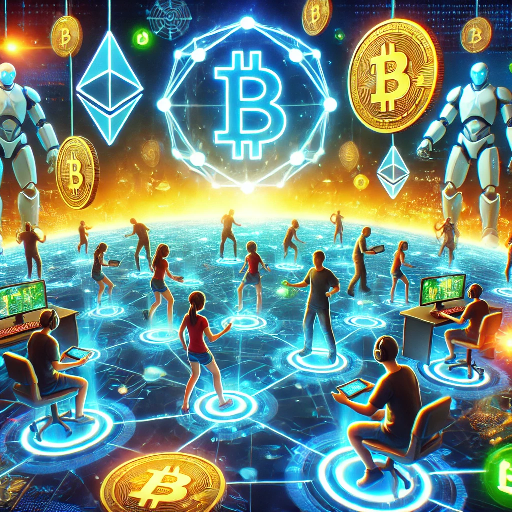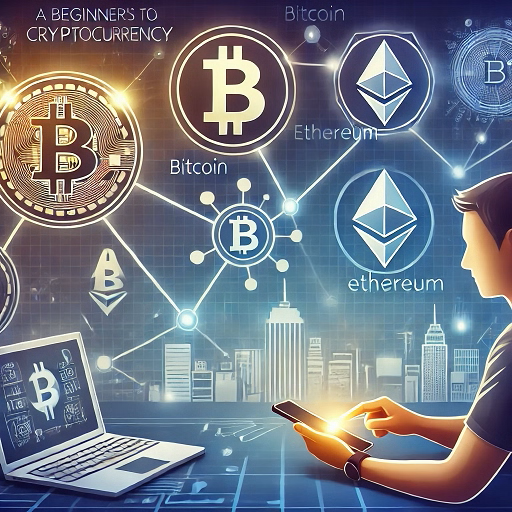The rise of Play-to-Earn-Tokens has revolutionized the gaming industry, merging immersive gameplay with real-world economic incentives. These tokens represent a new frontier where gamers can monetize their time and skills, blurring the lines between leisure and income generation.
What Are Play-to-Earn-Tokens?
Play-to-Earn-Tokens are digital assets powered by blockchain technology that players can earn through gameplay. Unlike traditional gaming models, where players invest money in virtual items or currency without any financial return, Play-to-Earn-Tokens enable players to own, trade, and sometimes cash out their in-game rewards. These tokens often operate on decentralized networks, ensuring transparency and true ownership.
For example, games like Axie Infinity and The Sandbox have introduced Play-to-Earn-Tokens that players earn by completing challenges, breeding characters, or participating in virtual economies. These tokens can often be traded on cryptocurrency exchanges, turning gaming achievements into tangible financial assets.
The Evolution of Gaming and the Role of Play-to-Earn-Tokens
The gaming industry has seen significant transformations, from arcade machines to massive multiplayer online games. The integration of blockchain technology and Play-to-Earn-Tokens is the latest leap, democratizing the way players interact with games.
Traditionally, gaming was a one-way transaction: players spent money on consoles, games, and microtransactions. With Play-to-Earn-Tokens, the model has shifted to a two-way interaction where players can also earn money. This paradigm has especially appealed to gamers in developing regions, where earning tokens can provide substantial economic benefits.
How Do Play-to-Earn-Tokens Work?
At their core, Play-to-Earn-Tokens function through blockchain technology, which provides the foundation for decentralized ownership. Here’s a closer look at their mechanism:
- Earning Tokens: Players earn tokens by achieving in-game milestones, completing quests, or engaging in battles. For instance, in Axie Infinity, players breed and battle Axies to earn Smooth Love Potion (SLP) tokens.
- Token Utility: Play-to-Earn-Tokens often serve multiple purposes. They can be used for purchasing in-game items, voting on governance proposals, or staking for additional rewards.
- Trading Tokens: Once earned, these tokens can be transferred to cryptocurrency wallets and traded on decentralized exchanges, giving players the flexibility to convert them into fiat money or other digital assets.
- Smart Contracts: The use of smart contracts ensures secure and automated transactions, eliminating the need for intermediaries.
Advantages of Play-to-Earn-Tokens
The Play-to-Earn-Tokens model brings numerous benefits to players, developers, and the gaming ecosystem as a whole:
- Empowering Players: Gamers now have a means to earn real-world value from their time and effort.
- Enhanced Ownership: Blockchain technology ensures that in-game items and tokens truly belong to the players, even outside the game’s ecosystem.
- Economic Inclusion: The model has proven particularly impactful in countries where traditional employment opportunities are limited. Gamers in nations like the Philippines have adopted Play-to-Earn-Tokens as a primary income source.
- Community Engagement: Play-to-Earn models often involve governance tokens, allowing players to participate in decision-making processes that shape the game’s future.
Challenges of Play-to-Earn-Tokens
While the benefits are significant, the Play-to-Earn-Tokens ecosystem is not without challenges:
- Economic Sustainability: For a Play-to-Earn model to succeed long-term, it must balance token supply with player demand. Inflation of tokens can devalue earnings.
- High Entry Barriers: Some games require players to make significant initial investments to start earning tokens, which can be a deterrent.
- Regulatory Concerns: Governments are still grappling with how to regulate blockchain-based tokens, leading to uncertainty for players and developers alike.
- Environmental Impact: Some blockchain networks powering Play-to-Earn-Tokens rely on energy-intensive proof-of-work mechanisms, raising concerns about their ecological footprint.
Popular Games Using Play-to-Earn-Tokens
Several games have become synonymous with the Play-to-Earn revolution. Here are a few notable examples:
- Axie Infinity: One of the most popular Play-to-Earn games, Axie Infinity allows players to earn tokens by battling, breeding, and trading Axies. Its native tokens, SLP and AXS, have gained significant value in the cryptocurrency market.
- The Sandbox: A decentralized metaverse where players can buy, develop, and trade virtual land using the SAND token.
- Gods Unchained: A card game where players earn GODS tokens by participating in battles and tournaments. The game emphasizes skill-based gameplay, reducing the „pay-to-win“ phenomenon.
- Decentraland: This virtual world allows players to buy and develop land plots using MANA tokens, creating a thriving digital real estate market.
The Future of Play-to-Earn-Tokens
The trajectory of Play-to-Earn-Tokens suggests that this model is here to stay, with several trends shaping its future:
- Mainstream Adoption: Major gaming studios are beginning to explore Play-to-Earn-Tokens, potentially bringing this model to a broader audience.
- Interoperability: Future games may allow players to use their tokens and assets across multiple platforms, enhancing their value and utility.
- NFT Integration: Non-fungible tokens (NFTs) are likely to play a bigger role, representing unique in-game items that can be traded or sold.
- Evolving Monetization Models: Developers will need to strike a balance between creating engaging games and maintaining sustainable tokenomics.
Impact on the Broader Economy
Play-to-Earn-Tokens extend beyond gaming, influencing global economies in several ways:
- Job Creation: The model has given rise to new professions, such as „scholars,“ who play games on behalf of others in exchange for a share of earnings.
- Financial Inclusion: For unbanked populations, blockchain-based wallets and tokens provide access to global financial systems.
- Digital Ownership: As more people invest time and money in virtual economies, the concept of digital ownership becomes increasingly significant.
Conclusion
Play-to-Earn-Tokens represent a groundbreaking shift in the gaming industry, turning virtual worlds into spaces where economic opportunity thrives. Despite challenges, their potential to redefine the relationship between gaming and financial systems is undeniable. As technology and regulations evolve, the Play-to-Earn model could become a cornerstone of the digital economy, empowering players worldwide to turn their passion for gaming into tangible rewards.




















